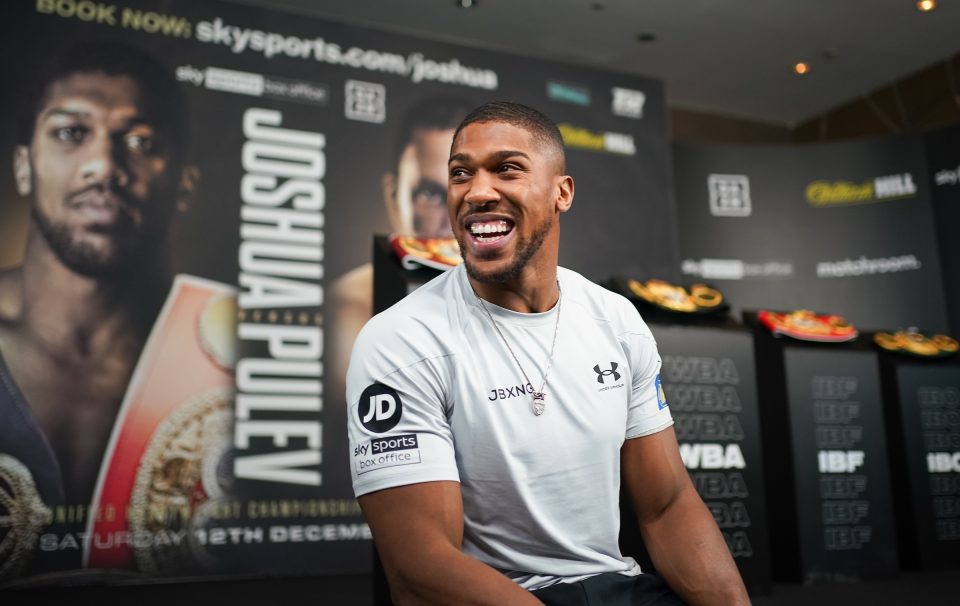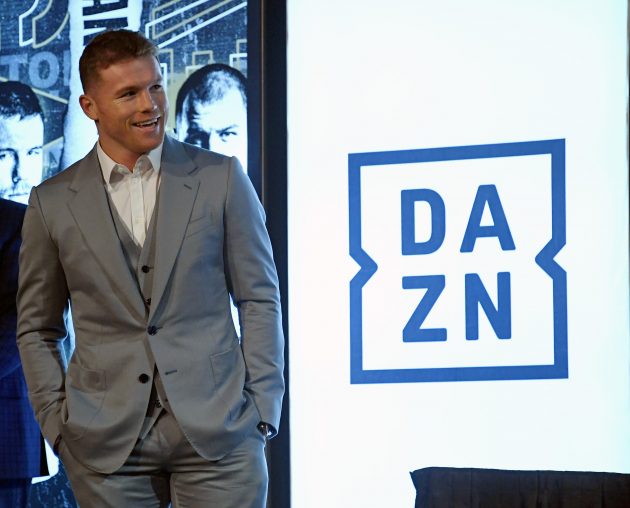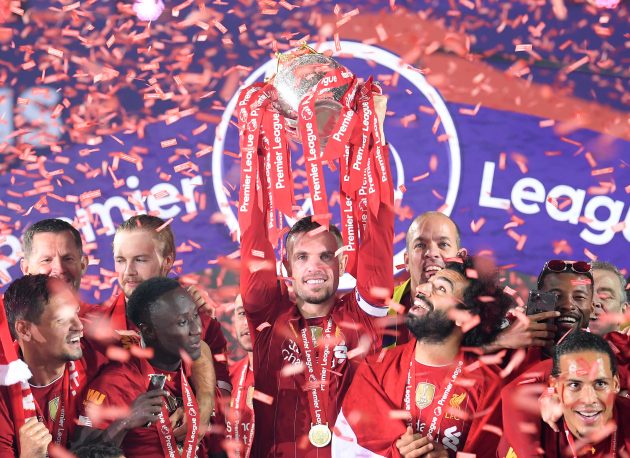Supersizing DAZN: Why a UK launch is just the start of the sport streaming service’s global ambitions

“Supersizing” is the buzzword of the moment at DAZN, the sport streaming service that finally launched in the UK this month.
It’s an appropriate one, in that it reflects DAZN’s expansion to more than 200 countries, making it the first global platform of its kind.
It is also suitably bullish for a company that is backed by billionaire Len Blavatnik, handed out the biggest single contract to a sportsperson when it signed boxer Saul “Canelo” Alvarez in a $365m deal, and boasts Cristiano Ronaldo and Neymar as ambassadors.
Since its inception in 2015, DAZN has been marked out by its big plans and its unashamed readiness to shout about them.
“I don’t see the pace of our ambition or growth slowing,” DAZN’s 32-year-old executive vice-president Joe Markowski tells City A.M. “In fact, I see it speeding up.”
How DAZN started and its UK launch
Although it is headquartered in London, DAZN took its first steps overseas and has remained unavailable to UK customers until now.
The company was born out of Perform Group, which also owned data specialists Opta, and hired BBC iPlayer creator Ben Lavender to design its platform in 2015.
DAZN launched first in Germany, Austria, Switzerland and Japan in 2016, later expanding to the US, Canada, Brazil, Italy and Spain.
Pronounced “da-zone”, it is often dubbed the “Netflix of sports”, although the company itself doesn’t encourage that tag.
“It’s how I’d describe it to my grandmother, but it’s not how we brand ourselves,” says Markowski, who is English but lives in New York.
Since 1 December, it has been available in the UK and most of the rest of the world on just about any device with a screen.
As it did successfully in North America, it is pinning this expansion on a series of blockbuster boxing matches that begins this weekend when Anthony Joshua fights Kubrat Pulev.
That is followed on 18 and 19 December by the latest title defences by two of the sport’s biggest names, Canelo and Gennadiy Golovkin.
Those latter two events are the big draw for subscribers in the UK and Ireland, the only territories where DAZN does not have the rights for Joshua’s fights.
Markowski calls the line-up “a pretty unmatched schedule of boxing over the next two or three months”.
Casting the net wide with low price
Priced at an initial £1.99 a month, or an equivalently low fee in other territories, DAZN is casting the net as wide as possible.
The strategy is in stark contrast to the pay-per-view model that has dominated boxing, where world heavyweight champion Joshua’s fights can cost £25 each.
“We don’t want price, platform, where you live or how you like to consume content to be a barrier to entry,” Markowski says.
“There is absolutely no reason I can think of, if you’re a boxing fan, why you wouldn’t be on DAZN in the next few weeks because it’s tremendous unmatched value that we think makes it a no-brainer.”
Markowski says DAZN won’t comment on numbers but that “we’ve been very encouraged by the early take-up”.
He adds: “We’re very proud to be ending the year on the front foot, which wasn’t guaranteed after the year we’ve come through.”
Delaying launch, split with Canelo
If DAZN had earmarked 2020 as a year of landmark growth, at times it looked more like one of crisis.
First, the outbreak of Covid-19 caused most sports to be halted, starving broadcasters of their lifeblood.
DAZN had announced its global rollout would take place in May. By mid-March, they realised it would have to be shelved.
Then things got worse. A row between Canelo and his promoters Golden Boy ended in a split and, ultimately, the severance of his $365m deal.
Losing their prize asset, widely considered the best current fighter in any division, was a bad look for DAZN.
Over the summer, it was reported to be seeking more funding through either an IPO or divestment. Later, it emerged that the company was laying off some staff.
“We went through what I’d describe as pandemic reaction mode, which every business in the world went through for a couple of months,” says Markowski.
“Then we went through a period of strategic reflection. We considered our major projects like the global platform launch; our structure; where we were investing our dollars; was that the right thing to do in the new world we’d stepped into?”
Billionaire Blavatnik ‘very supportive’
Working from his New York kitchen, Markowski and colleagues – one on a houseboat off the south coast of England, another in Kosovo – regrouped.
The global launch was re-scheduled for December. Canelo would agree to fight on DAZN again, albeit not on a long-term deal this time.
In October the DAZN Group, which separated from Perform in 2019, sold shares in its football websites including Goal.
Markowski won’t comment on talk of fundraising other than to emphasise that Blavatnik’s Access Industries remains “very supportive”.
“I think Covid has accelerated long-term trends that were going to happen anyway,” he adds.
“We now see that as an environment filled with opportunity. Yes, we’ve had to make some tough decisions. We’ve restructured the business.
“But I think we’re emerging more agile, focused and streamlined. Being honest, we probably needed a bit of that, a period of reflection.”
Adding more sports to boxing content
DAZN has betted big on boxing. Aside from the Canelo deal, it has a $1bn contract with Joshua’s promoters Matchroom, run by Eddie Hearn.
The company identified boxing as a route into the US market as the rights were affordable and, crucially, available. Many other major sports rights are tied down long-term.
Another advantage is the sport’s dedicated fanbase, explains Markowski.
“If you stitch boxing events together in a well sequenced way we know there’s a sizeable audience of global fans that is going to buy those fights and stay. And that’s really important for our business model.”
But it’s not all boxing. In other markets that have long had DAZN, it owns a wider portfolio of sports rights.

In Italy it has exclusive rights to Serie A. It has bought the Bundesliga and Champions League football in Germany. In Japan, its market-leading offering also includes Formula 1.
It has also invested in original programming and this week announced new documentaries featuring Joshua, Ronaldo, Canelo and Golovkin.
Markowski insists that DAZN plans to broaden its offering in the UK and its other new territories.
“We’re starting with boxing but very quickly you’ll see us spread our wings into a deeper subset of sports and rights,” he says.
“And longer term you’ll see us invest heavily in specific markets of the world.”
That heavy investment in specific markets is what the term “supersizing” refers to.
How DAZN plans to ‘supersize’
DAZN’s global expansion has two main benefits.
First, it maximises the value of the rights they already hold, many of which they own worldwide and have until now been selling on to broadcasters.
But second, and more importantly, it gives DAZN the infrastructure to supersize other markets, and the data with which to identify them.
Markowski says: “We are laying the global foundation. Speaking in architectural terms, we can now go and build very nice houses in different countries as and when we want to.

“Our decisions to invest heavily in specific markets will be shaped by consumer reaction – how readily a market adopts DAZN, the ease and cost of reaching them – and access to content and broader marketing opportunities.
“When consumer demand meets content and distribution opportunities, we’re going to be interested in a market.
“That’s when you’ll see us supersize – that’s the word we use internally – and double down hard on a given market.
“Even now, we’re assessing market viability. I think very quickly we’ll be in a position to take it to our board and then hopefully the market, supersizing various countries.
“When we do that we’ll put our foot down in various parts of the world more aggressively than we have done already.”
A bid for UK Premier League rights?
DAZN’s expansion opens up and inserts them into every rights discussion in the world, says Markowski.
One of the biggest – in profile and price – will be around the domestic rights for the Premier League, the tender for which begins next year.
Amazon Prime Video’s successful entry into that market may encourage other streaming platforms and none have professed ambitions bigger than DAZN.
Markowski straight-bats the topic: “We work with the Premier League in a number of countries and have done for a while. We’ve got a great relationship with them.

“As of right now, we’re not ready to speak about or even make any moves behind the scenes for any specific UK-focused content.
“I’m not ruling anything out, I’m not commenting on anything; I’m sitting firmly on the fence.”
All that, it seems, can wait. It has been an eventful few years already. DAZN is in the midst of a key period, and life doesn’t look like slowing down in 2021.
“We’re the only truly global sports broadcaster,” he says. “For a business that’s only four years old that’s pretty impressive.
“We’re pretty proud of that and I think we’re excited to get properly motoring this weekend.
“On a personal level, I’m hoping to get out of my flat a bit more often next year.
“As a business, we’re tremendously excited about putting our foot down globally, and what opportunities come out of the platform launch in terms of supersizing.”
